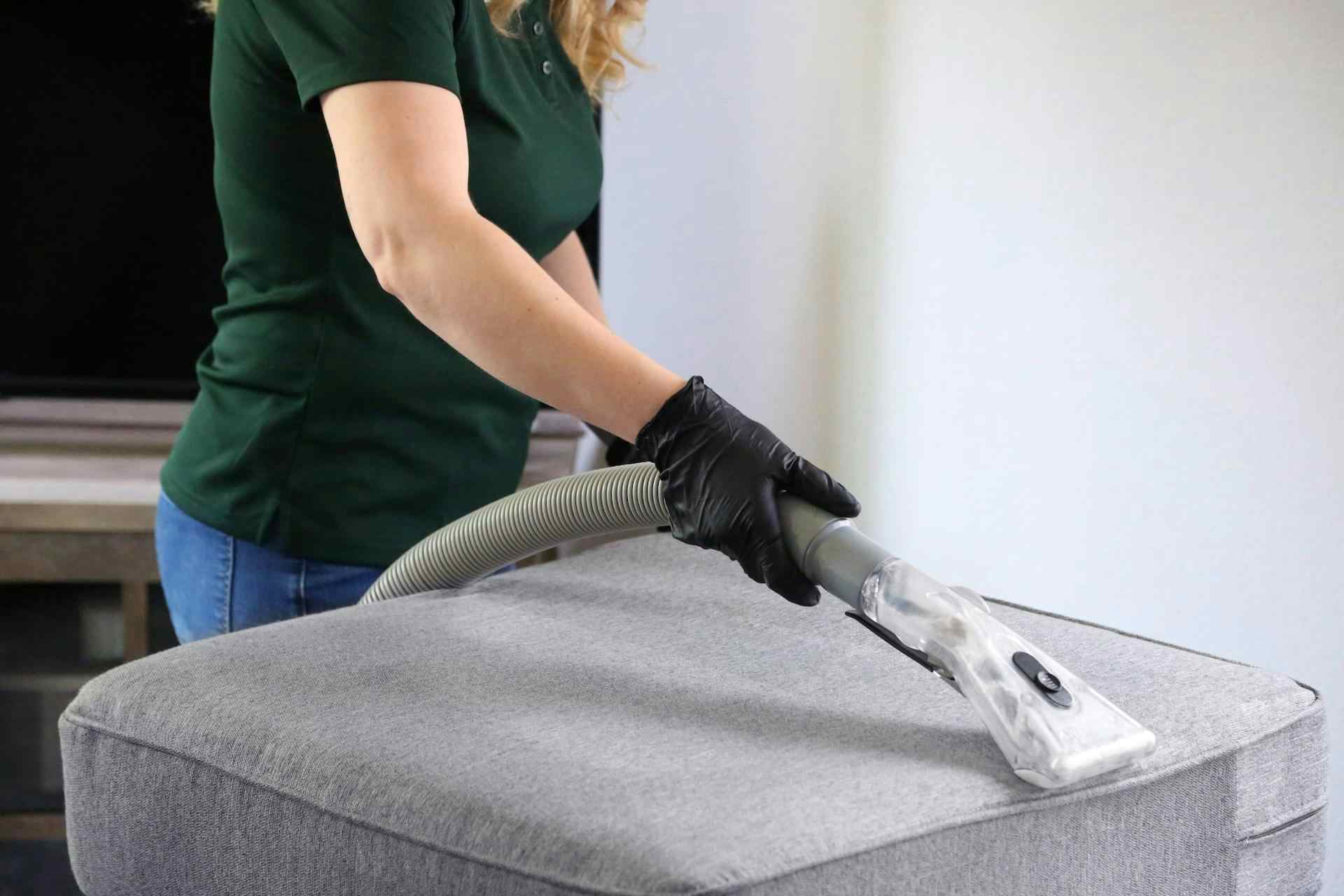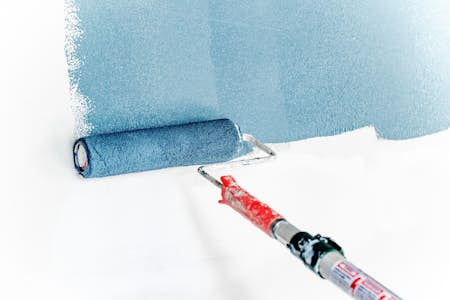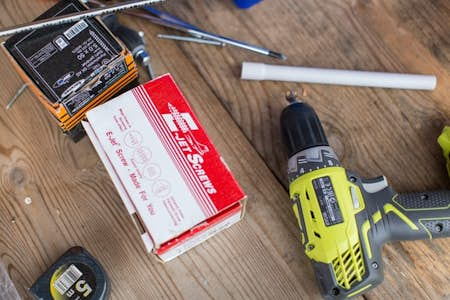Fleas in the pupal stage can stay dormant in an empty house for up to a year before becoming adults. If your property is occupied, fleas can survive year-round with human hosts, and they may reappear even after they seem to have gone.
When you’re a pet owner, you must occasionally deal with flea problems, such as cat or dog fleas. But if your household has no resident pets, you may still need to take action to tackle a flea infestation.
Perhaps you’ve moved into a home where the previous owner had pets. Fleas may remain in a property after any pets have left, or they can arrive in your home in various other ways, such as:
- Falling from the fur of a visiting animal who has them.
- Arriving on furniture or rugs brought into the home.
- Attaching to the clothing of a person who has been in contact with an animal, even if it's just a flea or two.
Fleas aren’t fussy, so although they prefer animal hosts, they will happily jump onto a human instead for a decent blood meal in the absence of a cat or a dog. Fleas can be found outside in environmental conditions that are shady and moist.
What are the signs of fleas in a house with no pets?
Aside from the itchy bites they leave behind, you may be able to spot fleas by looking for certain signs. Adult fleas are small, only 2-3 millimetres long, so you may need a magnifying glass to see them. Even though they like to stay hidden, you might catch one hopping around.
- The eggs might look like a scattering of white powder but are very unlikely to be visible.
- Larvae could lurk in the carpet and crevices in the floor. You may detect them if you get down on your hands and knees for a good look.
- Some people recommend shuffling across the floor in white socks to reveal evidence of fleas because, once disturbed, fleas will jump onto your legs and be visible against a white background.
- You may find fleas and flea dirt (flea faeces) on upholstery, under furniture, and in bedding.
Are fleas in a home without pets a problem for humans?
Fleas can negatively affect people as well as pets. It’s just as important to protect yourself from fleas as it is to protect a dog or a cat because:
- Fleas can bite and cause itchy, irritating skin reactions.
- They may transmit diseases such as murine typhus and tapeworms. However, you do not need to panic as the British Pest Control Association (BPCA) says fleas do not commonly spread disease in the UK.
- If you’re a homeowner or a tenant, any problem with pests can affect your mental health.
It is important to remember that fleas are a common problem. According to the pest control company Rentokil, inquiries related to suspected flea infestations in the UK increased by 47% in 2023. The good news is that fleas are unlikely to cause serious harm to humans, and removing them from your home is quite straightforward.
How to get rid of fleas in a pet-free home
With no access to a human blood meal or other food sources for flea larvae, fleas will eventually go away completely. If your property is empty, or you will be away for at least a month after thorough cleaning, the problem could disappear without any flea control treatments.
However, it’s better to be safe and deal with a flea infestation as soon as it occurs.
If you follow these simple flea treatments recommended by vets, you should be able to avoid paying for a visit from pest control.
- Vacuum floors, carpets, and upholstered furniture thoroughly, at least every other day, and steam clean if possible. Baking soda, salt, and diatomaceous earth are detrimental to fleas. Brushing these remedies into carpets and sprinkling them on floors before vacuuming could make the vacuuming process more deadly to fleas.
- Dispose of the vacuum bag or empty it into a bin bag outside, then tie it up and bin it immediately.
- Wash all throws, blankets, and bedding in hot water - at least 60 degrees Celsius.
- Use a flea spray, such as Indorex, that will kill adult fleas and prevent the development of flea eggs and larvae.
- To prevent fleas from returning to your petless home, you could try cleaning surfaces regularly with a vinegar solution and introducing natural flea-repellent scents, such as lemon, rosemary, and lavender, into your living space.
Professional help is available in the form of pest control technicians if you don’t feel like facing the hassle alone or if you're concerned you may have bedbugs.
Should you get pest control companies to remove a flea infestation?
Hiring a professional pest control company is recommended for severe flea infestations. Professional exterminators have effective treatments, expertise, and safety measures to eliminate fleas.
When hiring a pest control company, following their advice for preparing your home before treatment is important. This may include tasks like vacuuming, washing bedding, and decluttering.
For a mild flea infestation, you can use an over-the-counter insecticide and take preventive measures such as regular cleaning and paying extra attention to areas where fleas are known to hide, such as corners, crevices, and under furniture.
What is the life cycle of a flea?
Knowledge of the lifespan and habits of fleas gives you a much better chance of getting rid of these annoying pests as quickly as possible because once you realise that it’s not just the adult fleas that need to be eradicated, you can prevent the next generation from breeding in your home.
There are four stages to the flea life cycle.
- The egg. An adult female flea can lay as many as 50 eggs in 24 hours. The eggs hatch in a few days.
- The larvae. Flea caterpillars feed on ‘flea dirt,’ which is the flea faeces consisting mainly of dried blood. Larvae can also survive on other organic residue, such as dead skin. A larva forms a cocoon after a week or so.
- The pupa. In the cocoon, a pupa develops. Flea pupae can lay dormant for many months until they detect a suitable host.
- The adult flea. This tiny wingless insect has powerful hind legs and piercing mouthparts. An adult flea leaps onto and between hosts to feed on animal or human blood. Then, the female is ready to lay more eggs.
Preventing fleas from returning to a pet-free home
Once you’ve dealt with a flea infestation, homes without pets are less likely to see fleas return. However, if you’re concerned about flea prevention, it’s advisable to keep hoovering and cleaning as regularly as possible after the fleas appear to have left - just in case.
A thorough clean to de-flea is an ideal time for a mini home makeover. You can find some great ideas for refreshing your living space here.
Image Credit: Giorgio Trovato at Pexels






